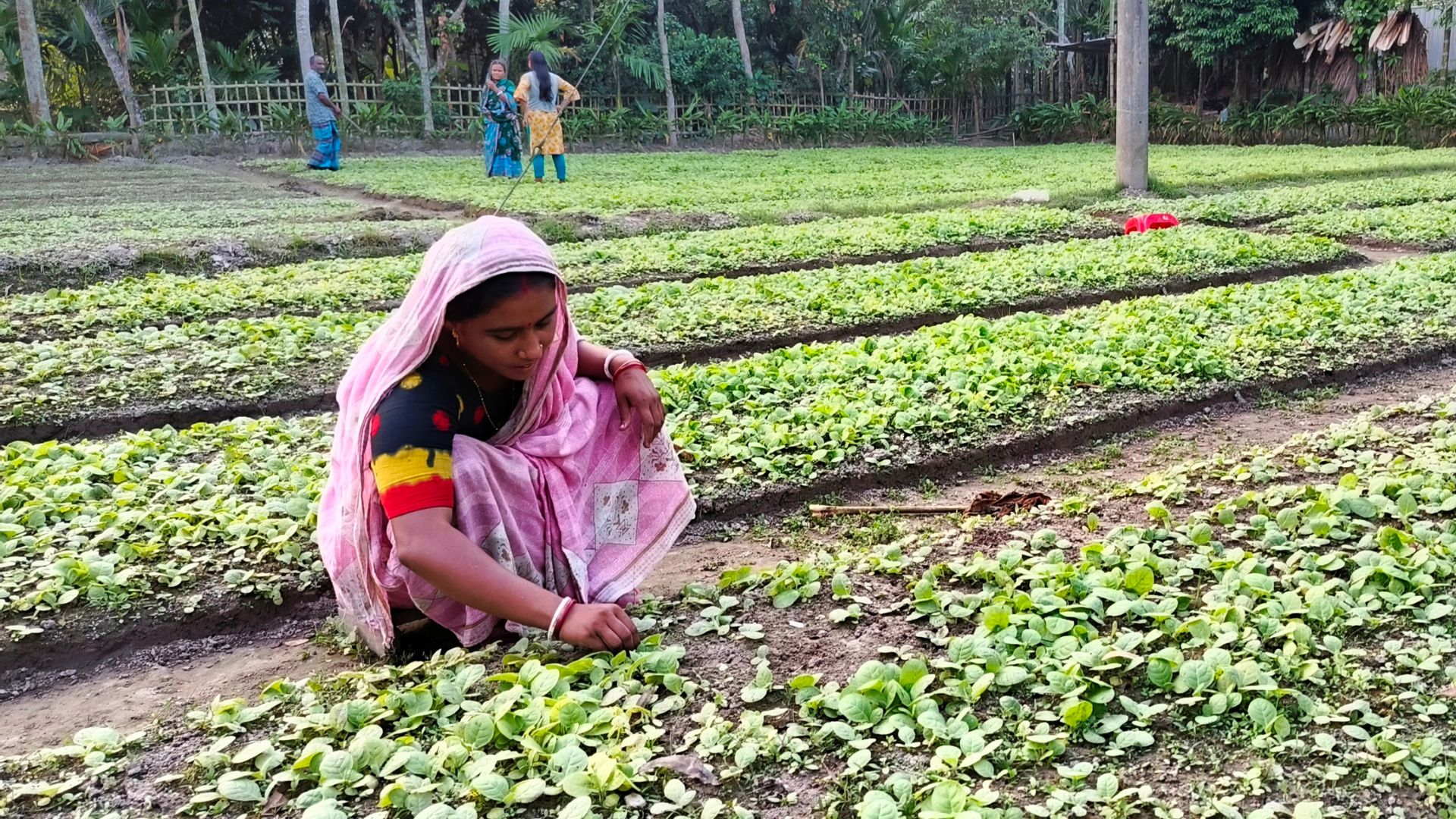Tobacco cultivation expands in Rangpur, Lalmonirhat amid profit lure

Farmers in Rangpur and Lalmonirhat are gearing up to cultivate tobacco on larger tracts of land this year, buoyed by the unexpectedly high prices they received for their crops last season.
Representatives from seven domestic and foreign tobacco companies are actively encouraging farmers to expand cultivation -- offering seeds, fertilisers, pesticides, and interest-free loans.
However, agricultural experts warn that the expansion of this “poisonous crop” is reducing the cultivation of essential food crops such as winter vegetables, mustard, wheat, and paddy, posing a growing threat to soil fertility, the environment, and public health.
Despite the warnings, the Department of Agricultural Extension (DAE) has yet to take effective measures to curb the expansion.
“Compared to last year, preparations are underway to cultivate tobacco on even more land this year,” said Mokbul Hossain, 55, a farmer of Haragach area in Rangpur’s Kaunia upazila.
“Last year, I grew tobacco on six bighas of land, and this year I’ve prepared two more bighas for the cultivation. The seedbeds are ready, and planting will begin in mid-November.”
In Lalmonirhat’s Aditmari upazila, farmer Gajendra Nath Sen, 58, said he cultivated tobacco on four bighas last year, producing 33 maunds.
“I sold my produce for Tk 2,77,200 at Tk 8,400 per maund,” he said. “My total production cost was around Tk 82,000. This year, I’ve doubled the area to eight bighas. Company representatives assured us the price will rise further and that selling won’t be a problem.”
Another farmer from the same village, Bishnu Chandra Sen, 60, expanded his cultivation from four to six bighas. “Even though we know tobacco harms the soil, the environment, and our health, we have no choice,” he said.
“The companies give us everything -- seeds, fertilisers, pesticides, and loans. So we continue [production] for the profit.”
In Mohipur village of Rangpur’s Gangachara upazila, farmer Saidul Islam, 60, said the number of tobacco growers in the area has noticeably increased.
“Tobacco is usually grown on fertile land. As its cultivation increases, vegetable, wheat, mustard, and paddy fields are shrinking day by day,” he said.
According to DAE officials, tobacco was cultivated on 19,500 hectares in the two districts last year -- 13,500 hectares in Lalmonirhat alone, including 7,300 hectares in Aditmari upazila. Around 43,000 farmers are currently involved in tobacco farming in the two districts.
Khorshed Alam, a member of the Anti Tobacco Media Alliance (ATMA), claimed the actual area is nearly double the official figure. “This year, preparations are underway on even more land,” he said. “If tobacco companies remain unchecked, cultivation will keep expanding.”
Attempts to contact representatives from three major tobacco companies were unsuccessful, as they declined to comment citing confidentiality policies.
Omor Faruk, agriculture officer of Aditmari upazila, said tobacco cultivation may rise by 15-20 percent this year.
“Many farmers are abandoning vegetable, mustard, and wheat cultivation for tobacco,” he said. “Companies are directly encouraging them and offering financial support. We’re trying to raise awareness, but farmers ignore our advice, chasing short-term profit.”
Sirajul Islam, additional director of the Rangpur Regional DAE, said preparations are underway to implement awareness programmes. “We’ve sought instructions from higher authorities so that companies can't directly influence farmers,” he said.
“Fertile land must be protected from tobacco. The environment and human health must be safeguarded, and food production should increase. But due to the absence of proper regulations, we cannot take direct action against tobacco companies,” he added.
“A large amount of chemical fertiliser used in tobacco cultivation is extremely harmful to the soil, environment, and human health,” the official said.




 For all latest news, follow The Daily Star's Google News channel.
For all latest news, follow The Daily Star's Google News channel.
Comments